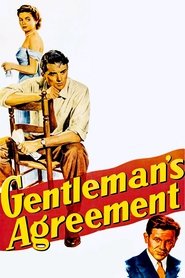Despite its problems, I wish all Message Movies were this well made. Given Kazan's own cross-cultural émigré background, it seems that the writerly Phillip Green is something of a directorial proxy. But the audience, i.e. the public unknowingly complicit in antisemitism with its don't-upset-the-applecart mentality and other liberal pieties is instead embodied in his fiancé, Kathy Lacy.
[A] mildly preachy yet invigorating script smartly distinguishes the disparity between facing anti-Semitism as a Jew and sympathizing or empathizing with Jews in the face of such discrimination. The indignation and fury of social justice is, for many, such a potent cocktail that they disregard or entirely dismiss the personal; in essence, their identity is swallowed by an ideal. In a near-prophetic artistic gesture, Kazan presages and diagnoses the cult of social-issue martyrdom in the cinema as wholly well meaning but ostensibly shallow and unwise
— Chris Cabin (Slant Magazine)
In 2014, Saul Austerlitz wrote that “contemporary social mores seemed to require a non-Jew to explain, codify, and present” this discrimination, which made the film simultaneously daring and cowardly. And it’s true: as trite and weak-willed as it seems now (and seemed to many contemporary observers), Gentleman’s Agreement was scandalous in its day.[…]
The noir Crossfire, a film released the same year, handles the topic far more seriously and far less palatably. Gentleman’s Agreement also does what so many Message Pictures do when making social problems into Everyone’s Problem: It undermines and enfeebles the actual victims of discrimination so that the hegemonic elite can feel empowered.
— Jacob Oller (Paste Magazine)

